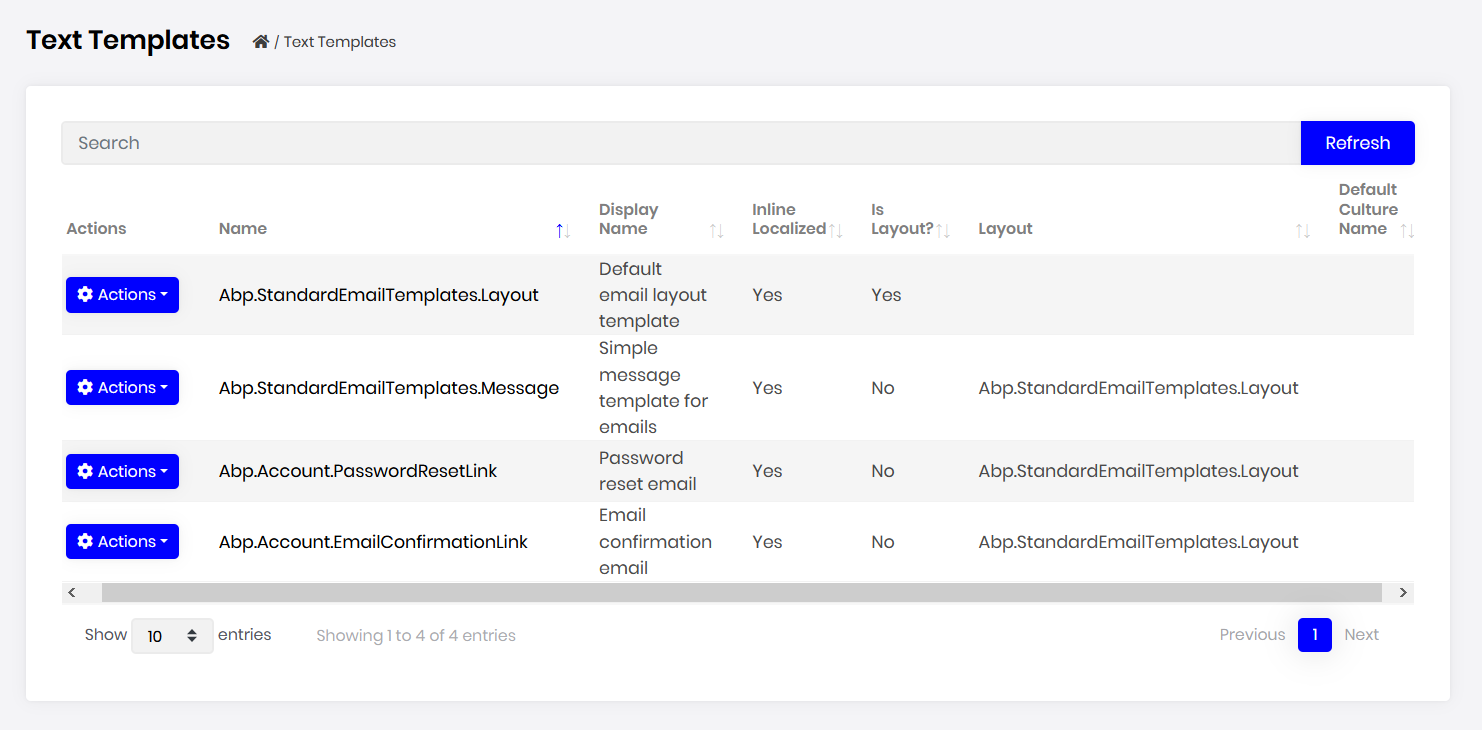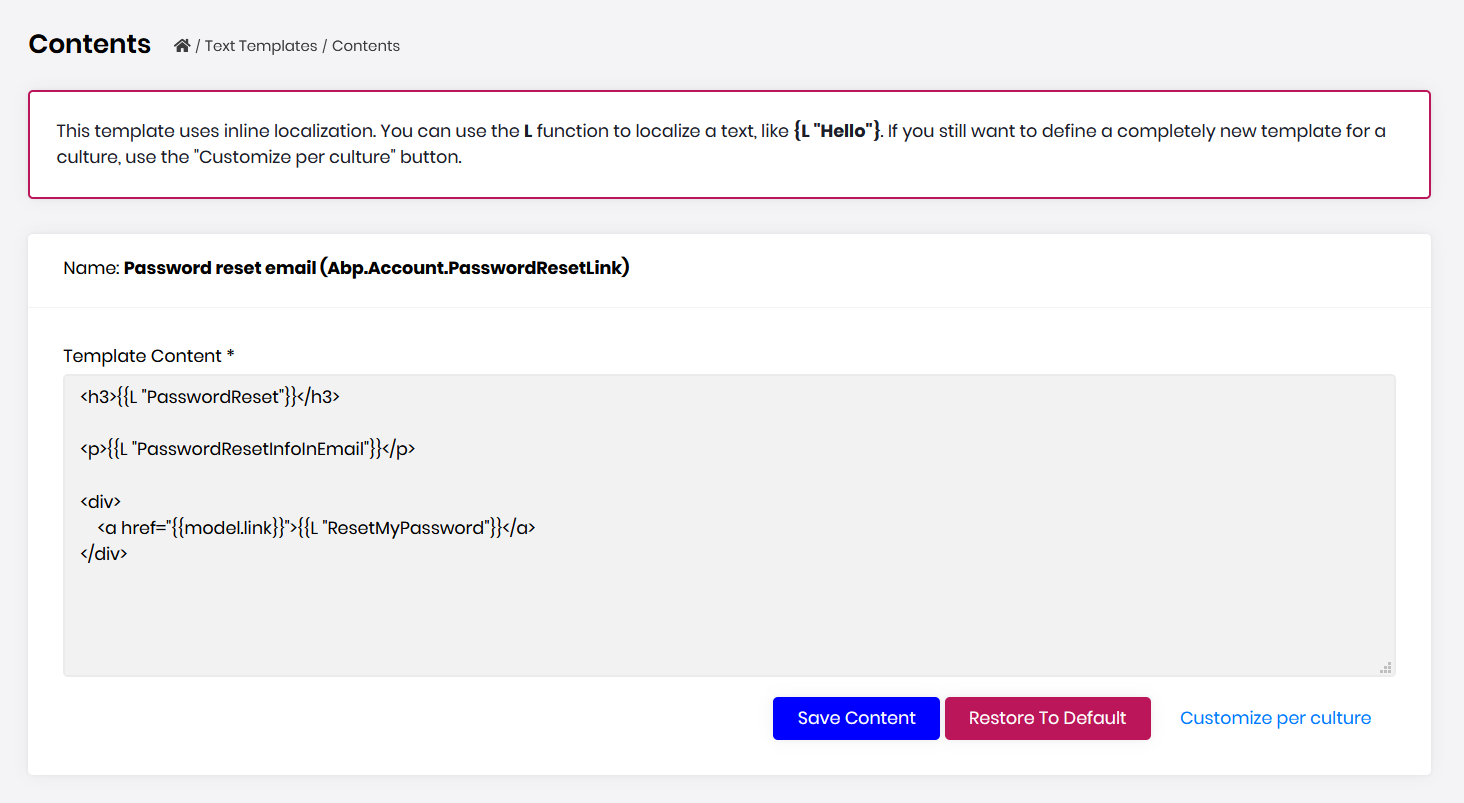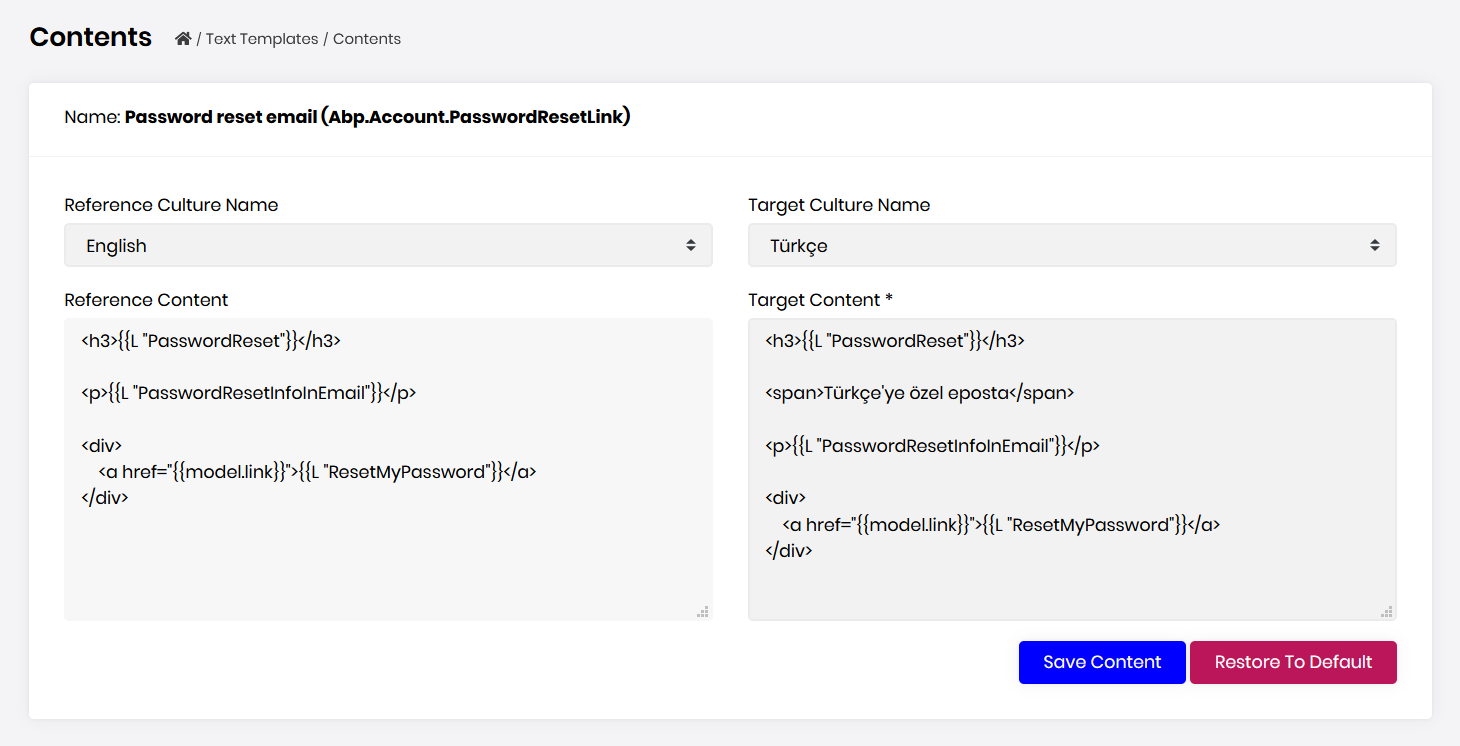Text Template Management Module
This module is used to store and edit template contents for the text templating system of the ABP framework. So, you may need to understand it to better understand the purpose of this module.
There are different use cases of the text templating system. For example, the Account Module is using it to define templates for sending emails when it needs to send emails to users (like sending "password reset link" email). This module provides UI to easily edit these email templates.
See the module description page for an overview of the module features.
How to Install
Text Template Management management module is pre-installed in the startup templates. So, no need to manually install it.
Packages
This module follows the module development best practices guide and consists of several NuGet and NPM packages. See the guide if you want to understand the packages and relations between them.
NuGet Packages
- Volo.Abp.TextTemplateManagement.Domain.Shared
- Volo.Abp.TextTemplateManagement.Domain
- Volo.Abp.TextTemplateManagement.Application.Contracts
- Volo.Abp.TextTemplateManagement.Application
- Volo.Abp.TextTemplateManagement.EntityFrameworkCore
- Volo.Abp.TextTemplateManagement.MongoDB
- Volo.Abp.TextTemplateManagement.HttpApi
- Volo.Abp.TextTemplateManagement.HttpApi.Client
- Volo.Abp.TextTemplateManagement.Web
NPM Packages
- @volo/abp.ng.text-template-management
- @volo/abp.ng.text-template-management.config
User Interface
Menu Items
Text Template Management module adds the following items to the "Main" menu, under the "Administration" menu item:
- Text Templates: List, view and filter text templates.
TextTemplateManagementMainMenuNames class has the constants for the menu item names.
Pages
Text Templates
Text Templates page is used to view the list of templates defined in the application.

Click to the Actions -> Edit Contents to edit content for a template. There are two types of UI to edit a template content:
Editing Content for Inline Localized Templates
This kind of templates uses the L function to perform inline localization. In this way, it is easier to manage the template for different cultures.

Editing Contents for Culture-Specific Templates
This kind of templates provides different content for each culture. In this way, you can define a completely different content for a specific culture.

Data Seed
This module doesn't seed any data.
Internals
Domain Layer
Aggregates
This module follows the Entity Best Practices & Conventions guide.
TextTemplateContent
TextTemplateContent(aggregate root): Represents a content of text template.
Repositories
This module follows the Repository Best Practices & Conventions guide.
Following custom repositories are defined for this module:
ITextTemplateContentRepository
Domain Services
This module follows the Domain Services Best Practices & Conventions guide.
DatabaseTemplateContentContributor
DatabaseTemplateContentContributor is used by ITemplateContentProvider to get template contents that stored in DB.
Settings
This module doesn't define any setting.
Application Layer
Application Services
TemplateDefinitionAppService(implementsITemplateDefinitionAppService): Implements the use cases of the text template management UI.TemplateContentAppService(implementsITemplateContentAppService): Implements the use cases of the text template management UI.
Database Providers
Common
Table/Collection Prefix & Schema
All tables/collections use the Abp prefix by default. Set static properties on the TextTemplateManagementDbProperties class if you need to change the table prefix or set a schema name (if supported by your database provider).
Connection String
This module uses TextTemplateManagement for the connection string name. If you don't define a connection string with this name, it fallbacks to the Default connection string.
See the connection strings documentation for details.
Entity Framework Core
Tables
- AbpTextTemplateContents
MongoDB
Collections
- AbpTextTemplateContents
Permissions
See the TextTemplateManagementPermissions class members for all permissions defined for this module.
Distributed Events
This module doesn't define any additional distributed event. See the standard distributed events.






























































